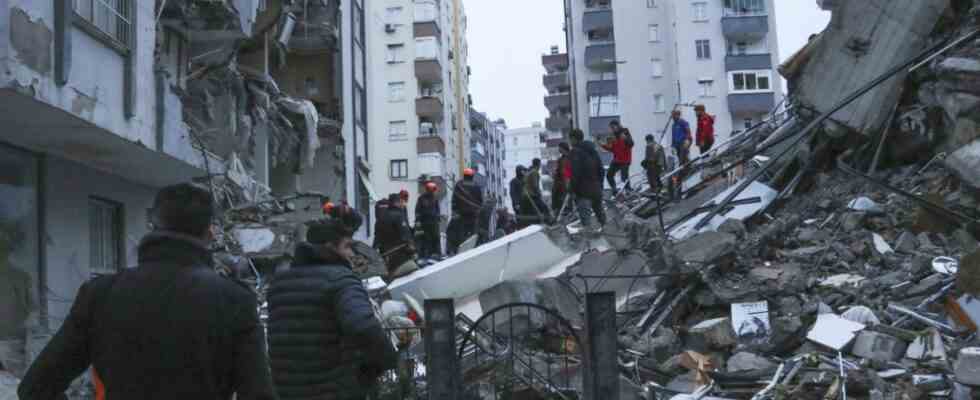After the severe earthquakes in Turkey and Syria with more than 1,500 dead and thousands injured, several states assure their willingness to help. International reactions at a glance:
Declared despite severe diplomatic tensions with Turkey Greek Prime Minister Kyriakos Mitsotakis: “Greece will help immediately.” The country has rescue teams with extensive experience in earthquake-stricken regions, as Greece – like Turkey – experiences tremors on and off.
Athens and Ankara have been at odds over sovereign rights in the Aegean and eastern Mediterranean for decades. In recent months, Turkish President Recep Tayyip Erdoğan has repeatedly threatened to invade Greek islands. The two NATO members had already helped each other in 1999 when there were severe earthquakes in Greece and Turkey. This aid, which is known as “earthquake diplomacy”, ushered in a phase of détente at the time.
NATO Secretary General Jens Stoltenberg wrote on Twitter this morning that allies were mobilizing support. He himself is in contact with Erdoğan and Foreign Minister Mevlut Çavuşoğlu. Stoltenberg wrote about his message: “Unlimited solidarity with our ally Turkey after this terrible earthquake.”
“Germany will of course send help,” wrote Federal Chancellor Olaf Scholz (SPD) on twitter. “We mourn with the relatives and fear for those buried.” Foreign Minister Annalena Baerbock (Greens) wrote of “terrible news” on Twitter in view of the catastrophe. She explained: “We will quickly get help on the way with our partners.”
The deployment of European rescue workers will be EU Disaster Relief Centre coordinated. “Ten teams from Bulgaria, Croatia, France, Greece, the Netherlands, Poland, Romania and the Czech Republic were quickly mobilized to assist first responders on the ground. Italy and Hungary also made their rescue teams available to Turkey,” he said EU foreign policy chief Josep Borrell.
The Slovenian EU Commissioner Janez Lenarcic also confirmed that the EU Civil Protection Mechanism had been launched. According to the Commission, it aims, among other things, to strengthen cooperation between the EU member states and the other participating states and to improve the reaction to disasters. If an emergency overwhelms a country’s ability to respond, the country can request assistance through the process. In addition to the EU countries, Turkey and European countries such as Norway are also involved in the system.
The 7.4 magnitude earthquake in southern Turkey and northern Syria was also reportedly felt in Israel, Lebanon and Cyprus. Israel announced shortly after the earthquake that it would provide humanitarian aid to Turkey. Israeli Defense Minister Yoav Galant instructed the army and his department to make appropriate preparations. “Our security forces are ready to provide any necessary assistance,” Galant said. Israel has experience with emergencies and saving lives. The Israeli rescue service Zaka announced that they are preparing to send an aid delegation. This should help with the search in collapsed houses.
In Italy the civil defense issued a tsunami warning that night and recommended people to move away from the coast. A few hours later, the authorities withdrew the warning. In the regions of Calabria and Apulia as well as on the island of Sicily, train traffic was briefly stopped as a precaution. The civil protection also offered its help for the earthquake region.

